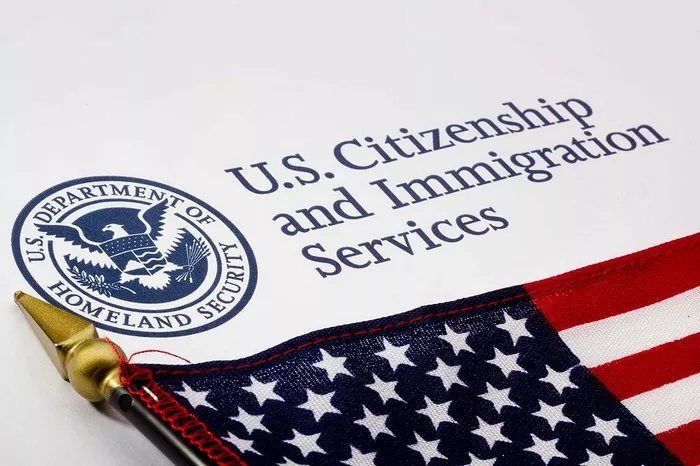Immigrating to the United States is a dream for many individuals seeking new opportunities, better quality of life, or reuniting with family. However, the process can be complex and daunting, involving various requirements and procedures. Understanding these requirements is crucial for a successful immigration journey. In this article, we will explore the key requirements individuals need to fulfill to immigrate to the United States.
Understanding Immigration Pathways
Before delving into the specific requirements, it’s essential to understand the different immigration pathways available in the United States. The U.S. immigration system offers various routes, including family-based immigration, employment-based immigration, diversity visa lottery, refugee or asylum status, and investment-based immigration, among others. Each pathway has its own set of eligibility criteria and requirements, tailored to different circumstances and goals.
Family-Based Immigration:
Family-based immigration allows U.S. citizens and lawful permanent residents (green card holders) to sponsor certain family members for immigration to the United States. The immediate relatives of U.S. citizens, including spouses, unmarried children under 21 years old, and parents (if the petitioner is over 21), have priority in this category. Other family members, such as siblings and married children, fall under the family preference categories and may face longer wait times due to annual visa quotas.
To qualify for family-based immigration, both the petitioner (the U.S. citizen or green card holder sponsoring the family member) and the beneficiary (the family member seeking immigration) must meet specific requirements. These requirements may include proving the familial relationship, demonstrating financial support, and ensuring the beneficiary is not inadmissible to the United States due to criminal history or other factors.
Employment-Based Immigration:
Employment-based immigration is designed for individuals who have a job offer from a U.S. employer or possess extraordinary abilities, advanced degrees, or specialized skills that are in demand in the United States. This category is divided into several preference categories, each with its own eligibility criteria and requirements.
The employment-based immigration process typically involves the employer obtaining labor certification from the Department of Labor (for most categories), proving the unavailability of qualified U.S. workers for the position, and sponsoring the foreign employee for a work visa (such as H-1B, L-1, or O-1 visa). In some cases, individuals may also self-petition for immigration based on their exceptional abilities or achievements.
Diversity Visa Lottery:
The Diversity Visa (DV) lottery, also known as the Green Card lottery, is a program that provides a limited number of immigrant visas each year to individuals from countries with historically low rates of immigration to the United States. Eligible participants must meet education or work experience requirements and be selected through a random lottery process.
Winners of the DV lottery are granted the opportunity to apply for immigrant visas, along with their eligible family members, and undergo further screening and processing to determine their eligibility for permanent residency in the United States. It’s important to note that winning the DV lottery does not guarantee a visa, as applicants must still meet all eligibility criteria and pass background checks.
Refugee or Asylum Status:
Individuals who have been forced to flee their home countries due to persecution, war, or violence may be eligible for refugee or asylum status in the United States. Refugees are individuals who apply for protection from outside the United States, while asylum seekers apply for protection once they are physically present in the country or at a port of entry.
To qualify for refugee or asylum status, individuals must demonstrate a well-founded fear of persecution based on race, religion, nationality, political opinion, or membership in a particular social group. They must also meet other eligibility criteria and undergo thorough screening and background checks to ensure they do not pose a security threat to the United States.
Investment-Based Immigration:
The EB-5 Immigrant Investor Program offers a pathway to permanent residency for foreign investors who make a significant investment in a new commercial enterprise that creates jobs in the United States. To qualify, investors must invest a minimum amount of capital (usually $1.8 million, or $900,000 in targeted employment areas) and create or preserve a certain number of jobs for U.S. workers.
In addition to the investment requirement, EB-5 investors must meet various eligibility criteria, including demonstrating the lawful source of investment funds, actively participating in the management of the enterprise, and ensuring the investment generates the required number of jobs within a specified timeframe.
Conclusion
Immigrating to the United States involves navigating a complex web of requirements, procedures, and pathways, each tailored to different circumstances and objectives. Whether seeking to reunite with family, pursue employment opportunities, or escape persecution, understanding the eligibility criteria and requirements is essential for a successful immigration journey.
While this article provides an overview of the key requirements for immigrating to the United States, it is important to note that immigration laws and policies are subject to change, and individual circumstances may vary. Consulting with an experienced immigration attorney or accredited representative can provide personalized guidance and assistance throughout the immigration process, helping individuals navigate the path to achieving their immigration goals in the United States.


